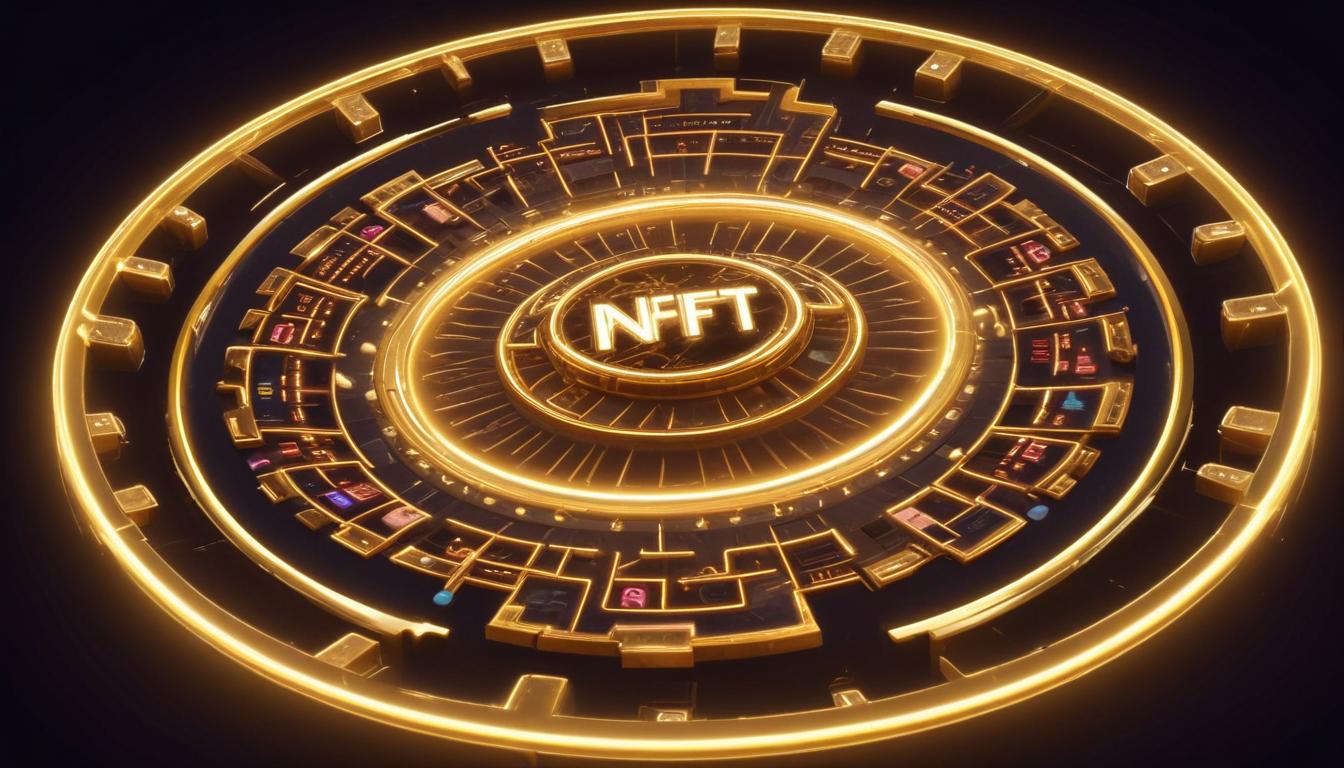Crypto casino business model innovation
- Crypto Casino Fundamentals
- Decentralized Gaming Platforms
- Tokenomics and Incentives
- Regulatory Landscape and Compliance
- Future Trends and Challenges
At the heart of any successful crypto casino lies a robust and secure foundation. This necessitates a deep understanding of blockchain technology, smart contracts, and cryptographic principles. The core functionality revolves around provably fair gaming, ensuring transparency and trust between the casino and its players. This is achieved through cryptographic hashing algorithms, which allow players to verify the fairness of each game round independently. The integration of a secure, reliable, and user-friendly wallet system is crucial for seamless deposits and withdrawals of cryptocurrencies. This aspect must be carefully considered, balancing user experience with robust security measures to prevent fraud and theft. The choice of blockchain network also plays a significant role, impacting transaction speeds, fees, and scalability. Efficient management of these operational aspects is critical for a smooth user experience and the successful scaling of the business.
A key aspect of the crypto casino business model is the implementation of diverse revenue streams. While traditional casinos rely heavily on percentage-based house edges, crypto casinos can explore innovative approaches. These could include transaction fees, affiliate marketing programs, and the potential for introducing their own utility tokens to enhance engagement and create additional revenue pathways. The development of unique game features, such as provably fair jackpot systems or integrated NFT functionalities, can significantly contribute to a compelling user experience and create a stronger unique selling proposition compared to traditional online casinos.
Understanding market trends and adapting to the evolving landscape of the cryptocurrency world is essential for continuous innovation. Staying ahead of the curve by incorporating emerging technologies and developing novel game features will provide a competitive advantage. Analyzing competitor strategies and identifying opportunities for disruptive innovation in game mechanics, bonus structures, and platform functionality is paramount to long-term success. The adoption of cutting-edge security protocols, such as advanced KYC/AML procedures and multi-signature wallets, is also vital to build trust and attract a wider player base. A well-defined revenue model, factoring in all potential income sources and operational costs, is fundamental to formulating a sustainable and profitable business.
Feel free to check out our webshop at https://buycasinoscripts.com/shop/ and check out our premade casino scripts. For a robust and feature-rich solution, consider our Revamped Classic Crypto Casino Source Code: https://buycasinoscripts.com/product/revamped-classic-crypto-casino-source-code/
Decentralized Gaming Platforms

Decentralized gaming platforms represent a significant innovation in the crypto casino business model. By leveraging blockchain technology, these platforms offer increased transparency, security, and player autonomy. The core principle is to eliminate the need for a centralized authority, such as a traditional casino operator, to manage the games and player funds. Instead, smart contracts automate the gameplay, ensuring provably fair outcomes and eliminating the possibility of manipulation. This fosters trust and encourages wider adoption, especially among users who value decentralization and privacy. The absence of a central authority also simplifies the regulatory landscape in certain jurisdictions, compared to conventional online casinos.
Several different approaches exist within decentralized gaming. Some platforms use a fully on-chain approach, with all game logic and data residing directly on the blockchain. This offers maximum transparency but can be constrained by scalability limitations and higher transaction fees. Others employ a hybrid model, combining on-chain elements for crucial aspects like fairness verification with off-chain processing for performance optimization. This hybrid approach attempts to strike a balance between transparency and scalability, allowing for smoother game play while still maintaining trust through verifiable outcomes.
The potential revenue streams for decentralized crypto casinos are diverse. While traditional house edges still apply in many games, the decentralized nature allows for novel revenue models. For example, transaction fees on deposits and withdrawals, or fees for specific game features, can generate substantial income. The implementation of a platform-specific cryptocurrency, with utility and governance functions, provides another avenue for generating revenue and fostering a strong community. This creates a unique selling proposition by rewarding users and incentivizing loyalty, enhancing player retention.
The ongoing development of emerging technology within the blockchain space further enhances the potential of decentralized gaming. Improvements in scalability solutions, such as layer-2 protocols, address previous limitations and facilitate wider adoption. This increased scalability and speed allows for more engaging game experiences and a superior user interface, generating a significant competitive advantage for those who embrace these advancements. Moreover, the integration of metaverse technologies and enhanced user interfaces promises to offer entirely new and disruptive innovation within the sector.
Analyzing market trends is critical to understanding player preferences and adapting the platform accordingly. The demand for decentralized gaming is growing rapidly, but the technology is constantly evolving. Staying ahead of the curve by incorporating new features and adapting to the market’s needs is crucial for the long-term success of any decentralized casino. The incorporation of new game features, such as those incorporating NFTs or interactive elements, enhances player engagement and helps a platform stand out from its competitors.
Feel free to check out our webshop at https://buycasinoscripts.com/shop/ and check out our premade casino scripts. For a cutting-edge solution, consider our BC Game Clone Casino Script: https://buycasinoscripts.com/product/bc-game-clone-casino-script/
Tokenomics and Incentives

A well-defined tokenomics model is crucial for the success of any crypto casino. This goes beyond simply using cryptocurrency for transactions; it encompasses a comprehensive strategy for incentivizing player engagement, fostering community growth, and generating sustainable revenue streams. A successful tokenomics model needs to consider several key factors, including the choice of token, its utility, and its distribution mechanism. The utility of the token is paramount – how will it be used within the casino ecosystem? Will it be used for in-game purchases, staking rewards, access to exclusive features, or governance rights? The answer to these questions shapes the overall attractiveness of the platform and drives user engagement.
Incentive structures play a significant role in attracting and retaining players. Rewards programs, bonus structures, and loyalty systems can all be designed around the token, creating a virtuous cycle of engagement and platform growth. For example, players might earn tokens for playing games, referring friends, or participating in community activities. These tokens can then be used to purchase in-game items, access exclusive content, or even influence the direction of the platform’s development through governance mechanisms. Consideration should be given to different reward tiers and the possibility of a tiered system of rewards to maximize player engagement.
The distribution of tokens is another critical aspect of the tokenomics model. Fair and transparent distribution is essential to build trust and avoid accusations of manipulation. Common distribution methods include airdrops, staking rewards, and in-game achievements. Careful planning is necessary to ensure a balanced distribution that both rewards early adopters and incentivizes continuous player participation. Balancing the supply and demand of the token is vital to maintaining its value and ensuring the long-term health of the ecosystem.
Another crucial element of tokenomics is the development of a sustainable revenue model. How will the casino generate revenue through its token? This could involve transaction fees, a percentage of in-game purchases, or even the sale of NFTs linked to the platform. The revenue model should be aligned with the overall tokenomics strategy, ensuring that the token’s value is tied to the success of the casino platform. This creates a clear connection between the platform’s profitability and the value of the token itself leading to growth and sustainability.
Lastly, understanding market trends and adapting the tokenomics model to changing player preferences and technological innovations is essential. The innovative use of tokens to enhance the overall gaming experience and create a unique selling proposition is crucial for gaining a competitive advantage. By continuously evaluating and improving the tokenomics model, crypto casinos can build robust, thriving ecosystems that attract and retain players, leading to long-term success and sustainable growth.
Feel free to check out our webshop at https://buycasinoscripts.com/shop/ and check out our premade casino scripts. For a solution incorporating advanced game features and a strong revenue model, consider our Fullsend GG Crypto Casino Source Code: https://buycasinoscripts.com/product/fullsend-gg-crypto-casino-source-code/
Regulatory Landscape and Compliance

The regulatory landscape for crypto casinos is complex and rapidly evolving, varying significantly across jurisdictions. Many countries lack specific legislation addressing crypto casinos, creating a grey area that presents both opportunities and risks. Some jurisdictions are actively developing regulatory frameworks, aiming to balance innovation with consumer protection and preventing illicit activities like money laundering. Others have adopted a more restrictive approach, outright banning or heavily regulating online gambling, encompassing crypto casinos as well.
One of the key regulatory challenges is the transnational nature of online gambling. Cryptocurrencies, with their pseudonymous nature, further complicate matters, making it difficult for regulatory bodies to track transactions and enforce compliance. Know Your Customer (KYC) and Anti-Money Laundering (AML) regulations are increasingly relevant, forcing crypto casinos to implement robust verification procedures to comply with international standards and reduce the risk of illicit activities. This necessity impacts the user experience, requiring a balance between security and ease of access.
The licensing and taxation of crypto casinos also presents a significant hurdle. Some jurisdictions offer licenses for online gambling, but the specifics regarding cryptocurrencies may still be unclear or in development. Taxation of profits and transactions involves determining the legal classification of cryptocurrencies and whether they are considered assets, currency, or something else entirely. This impacts the revenue model and the overall profitability of a crypto casino, potentially deterring market entry or impacting the business model significantly. The lack of a clear regulatory framework therefore leads to uncertainty for operators, hindering the wider adoption and growth of this burgeoning sector.
The level of compliance required will directly impact a crypto casino’s operations and its ability to attract players. A strong reputation for compliance will boost trust and attract a wider customer base, providing a competitive advantage in the market. A strong, proactive approach to KYC/AML procedures and legal compliance is thus crucial for sustained growth and market stability. Furthermore, continuous monitoring of regulatory changes and their impacts is essential for long-term business sustainability and maintaining a competitive position in a rapidly evolving environment.
The ongoing development and refinement of regulatory frameworks worldwide will directly influence future business models and market trends within the crypto casino industry. The future of this industry lies in adapting to changing regulatory landscapes and ensuring that innovation occurs within a framework of responsible gaming and ethical practices. The adoption of disruptive innovation in compliance measures, like decentralized identification tools, could offer advantages and redefine the approach.
Feel free to check out our webshop at https://buycasinoscripts.com/shop/ and check out our premade casino scripts. For a solution built with regulatory compliance in mind, consider our Case Opening Casino Script 2025: https://buycasinoscripts.com/product/case-opening-casino-script-2025/
Future Trends and Challenges

Looking ahead, several key trends will shape the future of crypto casino business models. The increasing sophistication of blockchain technology, particularly advancements in scalability and interoperability through layer-2 solutions, will unlock new possibilities for more complex and engaging game features. We can anticipate a rise in decentralized platforms offering enhanced privacy and player control, further challenging traditional casino models. The integration of emerging technology, such as the metaverse and augmented reality, will create immersive gaming experiences unlike anything seen before, representing a disruptive innovation in the industry. This is likely to drive significant shifts in the current revenue model and lead to the development of new revenue streams. For example, the successful integration of NFTs into game mechanics could lead to robust new revenue streams and unique selling propositions for platforms that adopt them.
However, the future is not without its challenges. The regulatory landscape remains fragmented and volatile, presenting ongoing hurdles for operators seeking compliance and market access in different jurisdictions. This regulatory uncertainty will continue to drive innovation in compliance procedures and lead to a constant need for adaptation. Moreover, the inherent volatility of cryptocurrencies continues to pose risks to both operators and players, necessitating robust risk management strategies and potentially impacting the broader appeal of crypto casinos. Market trends indicate a growing demand for provably fair gaming, transparent transaction processing, and enhanced security measures, necessitating investment in secure infrastructure and sophisticated security practices.
The increasing competition amongst crypto casinos is also a significant challenge. To retain a competitive advantage, operators must constantly innovate, introducing fresh game features, enhancing user experience through intuitive designs, and developing effective marketing strategies to attract and retain players. A strong understanding of market trends is crucial for navigating this competitive environment and adapting the business model to meet evolving player preferences. Successful adaptation here ultimately depends on a strong revenue model capable of supporting further growth and investments in ongoing innovation.
Feel free to check out our webshop at https://buycasinoscripts.com/shop/ and check out our premade casino scripts. For a solution equipped to handle the future of crypto casinos, consider our BC Game Clone Casino Script: https://buycasinoscripts.com/product/bc-game-clone-casino-script/

